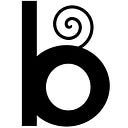What’s an Inventor?
Let’s consider the words “inventor” or “invent” and ask a few questions:
· Who in the process of invention should be called an inventor?
· Can an inventor simply be someone who has lots of ideas, but no proof, experimentation or implementation?
· Can an inventor be an implementer of someone else’s ideas?
· How original does an invention need to be?
· Do you need to have patents to be called an inventor?
· How many people need to use the invention before the person who invents it is called an inventor?
The word inventor is often used to categorize a person who is doing the act of inventing, and as a self-labeled term for someone who spends a majority of time discovering and producing new processes or things. It is not an earned title such as dentist or lawyer.
If you want to get serious about inventing and getting credit for your invention in the U.S., the United States Patent and Trademark Office (USPTO) is the place to register your invention and to protect others from copying your invention. According to USPTO, the definition of an inventor: is any person who “invents or discovers any new and useful process, machine, manufacture, or composition of matter, or any new and useful improvement thereof… that the invention is novel and non-obvious.”
The USPTO will give rights to an invention (inventorship definition) to the people who contribute to the conception of the invention. The office does not require that you take further action to implement or practice your invention after the conception stage. If it is a great idea, someone else will leverage it, and often reward the inventor.
At Baby Monster Group, we believe that inventors are people who not only come up with original ideas and verify their validity, but also exercise and implement ideas.
We believe everyone should think and act like an inventor no matter what your main job is because most famously quoted inventors have had many different roles in their lifetimes.
Even in the toy industry, there are many inventors. I recently met one, Richard Levy, who has co-developed over 200 toys. “The Toy and Games Inventor’s Handbook” is his story about being an investor.
In summary, this is how we’d characterize inventors:
- Inventors think about problems
- Inventors observe, investigate and question the current state
- Inventors create new ideas, whether evolutionary or revolutionary to the current state
- Inventors research and experiment on new ideas
- Inventors iterate, and seldom give up
We would love to see more people inventing!
Linda Chen is the Founder of Baby Monster Group, a company focused on giving children of any age, gender and economic background an equal opportunity to learn STEM. Linda has a Master of Arts degree in Statistics from Columbia University, an MBA from the London Business School and a Bachelor of Science degree in Computer Science from the Massachusetts Institute of Technology. She currently lives in Mercer Island with her husband and their two daughters.
